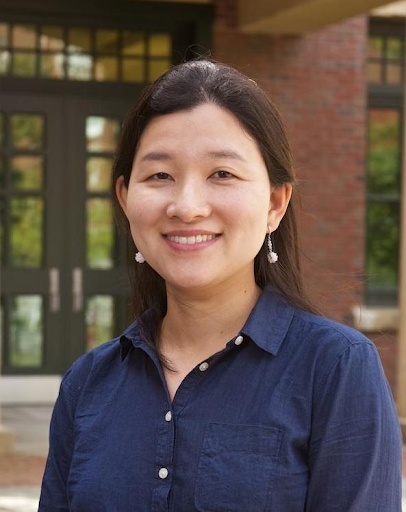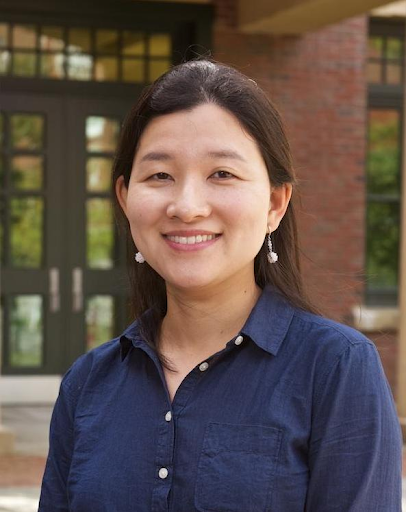STEM Network x The Student: Jeeyon Jeong
Professor of Biology Jeeyon Jeong was recently awarded a prestigious CAREER award from the National Science Foundation. Sarah Lapean ʼ23 details her research, career, and future plans.


Brought to you by Amherst STEM Network and The Student’s Arts and Living Section. This article is part of an ASN series that features grants awarded to Amherst professors.
Assistant Professor of Biology Jeeyon Jeong was recently awarded a grant from the National Science Foundation’s (NSF) Faculty Early Career Development Program (CAREER). The CAREER award provides faculty early in their career with five years of funding for research and educational resources. It is considered one of the most prestigious awards for basic science: the type of research that provides the foundation for applied science.
Jeong discussed the grant’s purpose and her research in general. She is a molecular biologist, and her lab studies iron regulation in plants. Iron is an essential nutrient, but it can be toxic when not properly regulated in cells. “Organisms have evolved very complex mechanisms to make sure iron is tightly regulated,” Jeong says. These mechanisms allow organisms to obtain and use the iron they need while avoiding toxicity. Jeong's current project (funded by a previous NSF grant) works to understand an iron transporter that is dual-targeted, located in both chloroplasts and mitochondria. These organelles are sites of energy production for the cell: they require a lot of iron, but they are susceptible to iron-induced toxicity. The lab studies how the transporter regulates iron and what happens when the regulator does not do its job correctly. This new NSF grant, which begins in August, continues that research and branches out to explore some “unexpected, interesting findings.”
In addition to this research, Jeong hopes to reach out to the local community to create paths for younger students to explore science. Part of the main outreach is planned to be a “community-based learning course” for local public schools, so that they can run proper hands-on science activities for kids in upper elementary grades. She is planning to partner with Sunderland schools in Massachusetts.
Considering the real-world effects of her research, Jeong states that her lab studies science at the molecular level. Though her research focuses on plants, iron regulation systems seem to be similar across different organisms. What Jeong learns in plants deepens our understanding of universal iron regulation mechanisms.
Understanding iron regulation in plants also has a direct impact on the study of agriculture and the environment. “In nature, iron is quite abundant in the soil, but under aerobic conditions … it is very difficult for plants to acquire iron,” Jeong explained. Many crop plants are actually iron-deficient because fertilizers cannot easily supplement iron. “If we better understand the molecular mechanisms of how plants regulate iron, we can help agriculture,” Jeong said.
There is also a link to human health. Though staple crops are our primary source of dietary iron, the amount of iron in the edible parts of plants is limited. Jeong's research may help develop strategies to grow crops with more iron in their edible portions. This process is known as biofortification, and could be a sustainable solution for the malnutrition that “affects nearly half the world's population.”
When I asked about her research inspirations, Jeong laughed: she wishes she could say she was always interested in iron since she was a child. The reality is that she got into iron research as a first year graduate student, rotating in a lab that studied iron regulation in plants. Her mentor was “very inspiring,” which motivated her decision to stay in that lab. This decision set the stage for the rest of her research career.
You can typically find Jeong teaching molecular genetics, biochemistry, the molecular intro course, or a seminar on the biology of metals. Next school year, however, she will be on sabbatical, continuing to change the world in microscopic but momentous ways.





Comments ()